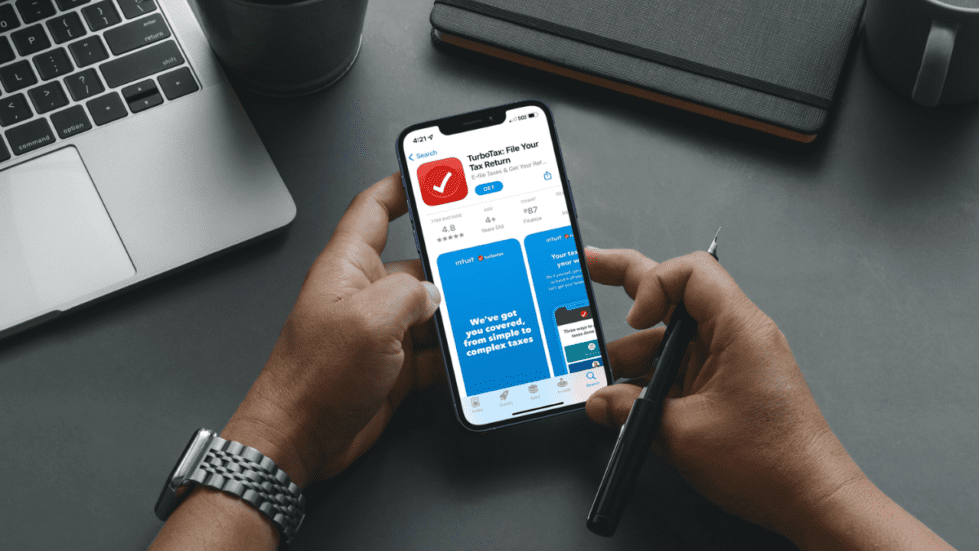Delaware Attorney General Kathy Jennings announced Wednesday that Intuit Inc., the company behind online tax filing software TurboTax, will pay more than $400,000 to low-income Delaware residents who were deceived by the company.
The settlement comes as part of a $141 million agreement between the attorneys general of all 50 states, the District of Columbia and Intuit.
Intuit must also suspend TurboTax’s “free, free, free” ad campaign, which Jennings said lured customers with promises of free tax preparation services, only to deceive them into paying for services.
“Intuit benefited from a special agreement with the U.S. government to provide free tax services to low-income consumers nationwide, all while preventing Delawarean consumers from taking advantage of those free services,” Jennings said. “Intuit engaged in deceptive and unfair tactics to hide access to free services and to instead promote its own profit-generating tax filing products instead.”
Jennings said Delawareans who struggle to put food on the table shouldn’t be tricked into paying for tax preparation services they don’t need.
“My office will continue to protect consumers statewide and be on the lookout for businesses who seek to take advantage of them,” she said.
An investigation into Intuit began after ProPublica reported that the company was using deceptive digital tactics to steer low-income consumers toward its commercial products and away from federally-supported free tax services.
Intuit has offered two free versions of TurboTax. The first was through its participation in the IRS Free File Program, a public-private partnership with the Internal Revenue Service which allows taxpayers earning roughly $34,000 and members of the military to file their taxes for free.
In exchange for participating in the program, the IRS agreed not to compete with Intuit and other tax-prep companies by providing its own electronic tax preparation and filing services to taxpayers.
Intuit also offers a commercial product called “TurboTax Free Edition,” which is only free for taxpayers with “simple returns” as defined by Intuit.
In recent years, Jennings says TurboTax has marketed the “freemium” product aggressively, including through ad campaigns where “free” is the most prominent or sometimes the only selling point.
In some ads, the company repeated the word “free” dozens of times in as short as 30 seconds. However, the TurboTax “freemium” product is only free for approximately one-third of US taxpayers. In contrast, the IRS Free File product was free for 70 percent of taxpayers.
The multistate investigation found that Intuit engaged in several deceptive and unfair trade practices that limited consumers’ participation in the IRS Free File Program.
The company used confusingly similar names for both its IRS Free File product and its commercial “freemium” product, Jennings said.
Intuit bid on paid search advertisements to direct consumers who were looking for the IRS Free File product to the TurboTax “freemium” product instead. Intuit also purposefully blocked its IRS Free File landing page from search engine results during the 2019 tax filing season, effectively shutting out eligible taxpayers from filing their taxes for free.
TurboTax’s website included a “Products and Pricing” page that stated it would “recommend the right tax solution,” but never displayed or recommended the IRS Free File program, even when consumers were ineligible for the “freemium” product.
Under the agreement, Intuit will provide restitution to millions of consumers who started using TurboTax’s Free Edition for tax years 2016 through 2018 and were told that they had to pay to file even though they were eligible to file for free using the version of TurboTax offered as part of the IRS Free File program.
Consumers are expected to receive a direct payment of approximately $30 for each year that they were deceived into paying for filing services. Impacted consumers will automatically receive notices and a check by mail.
Intuit has also agreed to the following reforms to its business practices:
- Refraining from making misrepresentations in connection with promoting or offering any online tax preparation products;
- Enhancing disclosures in its advertising and marketing of free products;
- Designing its products to better inform users whether they will be eligible to file their taxes for free; and
- Refraining from requiring consumers to start their tax filing over if they exit one of Intuit’s paid products to use a free product instead.
Intuit withdrew from the IRS Free File program in July 2021.
The matter was handled for the Delaware Department of Justice by its Consumer Protection Unit.
This is a republication of a press release from the Delaware Department of Justice. It has been edited for clarity.
Charlie Megginson covers government and politics for Town Square LIVE News. Reach him at (302) 344-8293 or [email protected]. Follow him on Twitter @cmegginson4.
Share this Post





